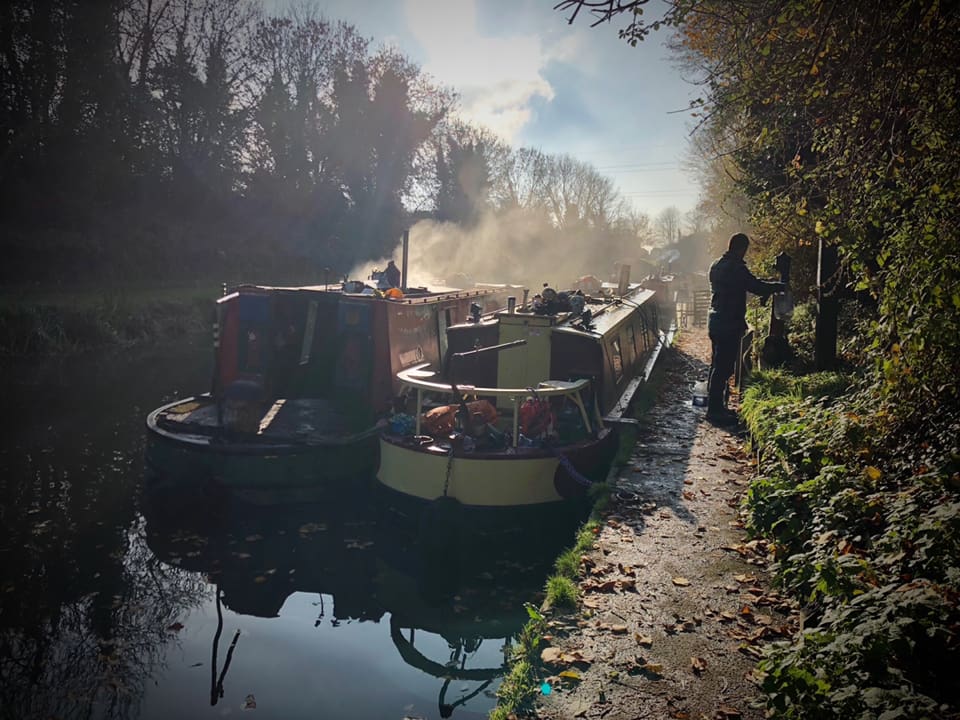Today, Friends, Families and Travellers (FFT) release findings from the largest ever UK study on the health experiences of Liveaboard Boaters. The landmark research reveals that 37% of Boaters have been wrongfully refused registration at GP surgeries and dentists and that if registered, Liveaboard Boaters are, on average, 47 kilometers away from their GP.
During October 2019, FFT asked people living on boats to share their healthcare experiences through a survey as part of their role on the VCSE Health and Wellbeing Alliance. Of the 356 people to respond, the survey found only 88% of Boaters were registered with a GP at the time of responding and only 52% were registered with a dentist.
Responses to the survey show that Boaters overwhelmingly report poorer experiences of accessing appointments in comparison to the general population with only 50% of Boaters rating their experience of trying to get an appointment as ‘Very Good’ or ‘Fairly Good’ in comparison to 67% of the general population.
Worryingly, only 64% of Boaters reported having received an invitation to cervical screening or breast screening when they should have and only 53% of Boaters reported having received an invitation for bowel cancer screening when they should have.
Organisations working on behalf of Boaters estimate that between 15,000 and 50,000 people live on Britain’s waterways. In recent years increasing numbers of people have moved to live on boats on inland rivers and canals. Reasons for this vary, but include being priced out of local housing, choosing to downsize following retirement, an attraction to boat life and people experiencing homelessness moving onto small or homemade vessels.
The report calls for health and care services to develop a clear understanding of Liveaboard Boaters and their health needs in their area, to work across organisational and geographic boundaries to deliver care for patients and to ensure appointment invitations and health information reaches patients on the move.
Responding to the findings of the research, Sarah Sweeney, Policy and Communications Manager at Friends, Families and Travellers said:
“Today’s report has shed a light on the stark inequalities nomadic people in the UK experience in accessing NHS services. All too often, we hear from people who have never received an invite to screenings when they should have, find it almost impossible to access healthcare appointments or simply can’t get registered at a GP to begin with. This takes a huge toll on people’s lives, in some situations meaning that cancer is diagnosed at a late stage when there is less chance of survival or meaning that people in need of mental health support are left struggling to cope by themselves. We are calling on NHS services to improve the support they offer to Liveaboard Boaters and send out a clear message – the NHS is for everyone.”
Speaking on the report, report co-author and Liveaboard Boater, Sam Worrall, said:
“The longer-term impact of not being able to access primary and secondary healthcare can seriously affect people’s quality of life and longevity, and is a greater cost to the NHS when health issues are left untreated. Local authorities and healthcare providers must consider their Liveaboard Boater communities and ensure there is engagement and service provision to meet the needs of this diverse and often hidden group.”
Reflecting on her experience as a Liveaboard Boater, Alice Young, in her role as Gypsy, Roma, Traveller & Boater Team Leader at Julian House, said:
‘It is so important to have data which highlights the health inequalities which exist for Liveaboard Boaters. Our service is acutely aware of how inequalities impact on a community often described as ‘hidden’. Julian House is committed to work with organisations like FFT to ensure the health status of Liveaboards is visible and a priority.’
Emma Whitcombe, Policy Officer at Friends, Families and Travellers added:
‘It’s great to have a report that acknowledges the challenges we experience as Boaters, while reflecting the diversity and resilience of the community. There are some very simple steps which health services can take to make things work better for Boaters; even as simple as asking questions and listening to the answers. Organisations can find creative ways to get around the systems they have – sharing knowledge between staff is a good way to start, for example having a way for staff to identify that someone accessing your service lives on a boat’.
Notes for Editor
About Friends, Families and Travellers (FFT)
Friends, Families and Travellers is a leading national charity that works to end racism and discrimination against Gypsy, Roma and Traveller people and to protect the right to pursue a nomadic way of life. Friends, Families and Travellers is a member of the VCSE Health and Wellbeing Alliance, which is a partnership between voluntary sectors and the health and care system to provide a voice and improve the health and wellbeing for all communities.
Media Contact
Lucy Hetherington, Communications Officer
Tel: 07425 419853 Email: [email protected]
Additional Resources
The health status of Liveaboard Boaters, March 2021. View here.

